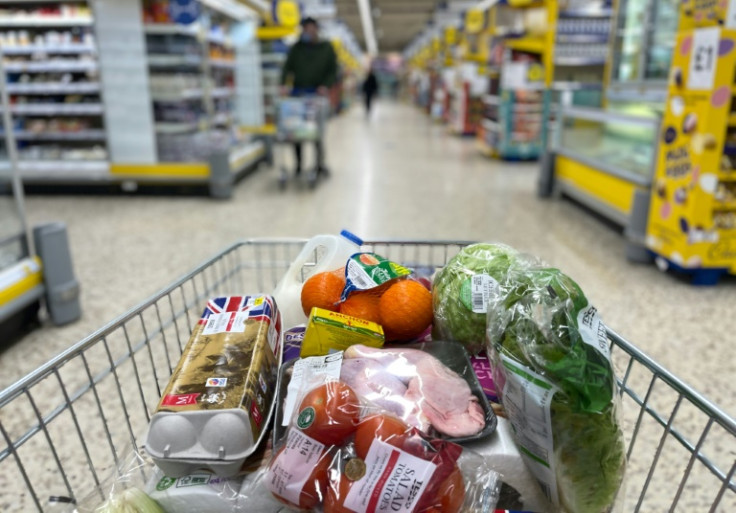
People in Britain will soon get some relief from the cost-of-living crisis as the UK government is planning to set up a critical imports council to ensure vital supplies of things like medicine, food, minerals and semiconductors are maintained.
The primary aim of this move is to tackle the shortage of these essential items amidst climate threats and geopolitical problems like the present situation in the Red Sea which is affecting the shipping industry.
The new Critical Imports Council will have academics and UK businesses. The council will hold their first meeting in three months to discuss potential issues and to underline actions to secure supplies. The council will work on identifying and predicting geopolitical tensions and suggest alternative routes to gather sources for UK production.
On January 17, the UK Economic Security Minister Nusrat Ghani announced that the new critical imports council will be formed according to the strategy underlined by an industry publication, which speaks of guarding UK supplies against global supply chain disruptions amidst rising geopolitical fragmentation and extreme climate conditions.
The industry report made by over 100 UK firms from various sectors across the country including the UK pharmaceutical industry and UK manufacturing bodies like the Association of the British Pharmaceutical Industry (ABPI) and the Society of Motor Manufacturers and Traders (SMMT) have called for action.
Although the strategy was conceived during the COVID-19 global supply chain disruptions, it has been revamped in light of the recent Red Sea attacks. During the COVID-19 pandemic global supply chains were affected as factories closed down all over the world and now a similar danger in looking as the world's most crucial waterways is under attack. This can result in higher prices for UK imports, revealed the report.
The Sunak government will be asking UK businesses to report issues related to UK imports through an online portal as UK ministers tackle supply chain problems.
Pressure is mounting on the Sunak government as it faces criticism for the NHS medicine supply shortage caused partially by post-Brexit tax rules and the decline in the value of the pound. UK medicine makers have alleged that post-Brexit regulatory delays are hampering supplies.
The UK food supplies for many critical items like tomatoes, cooking oil etc are also affected due to the climate crisis in the regions that produce it. Countries like India have banned exports of staples like rice and wheat after poor harvests while fertilisers and grain supplies are hit due to the Russian invasion of Ukraine and Putin pulling out of the Black Sea Grain deal.
The new critical imports council to cater to the changing trade relationships?
Meanwhile, the Liberal Democrats have lashed out against the Tory government saying it is a desperate attempt to clean up the mess that they have created.
Liberal Democrats MP, Sarah Olney said: "This Conservative government has caused untold damage to British trade – erecting barriers, tying up our businesses in red tape and negotiating one failed trade deal after the next. This is anything but a proper strategy and more of a desperate attempt from ministers to clean up their own mess."
Some organisations like the British Generic Manufacturers Association (BGMA) which represents four out of five NHS medicines supplying companies alleged that the government didn't consult them regarding the new imports council.
The Chief Executive of BGMA Mark Samuels said they were "disappointed not to have been involved", adding that the medicine supply shortage is due to UK regulatory and tax changes. Samuels said that the government should take measures to make the UK appear more sustainable for companies to supply.
The Economic Security minister said on Wednesday that recent events have shown the world that "we cannot afford to take for granted the resilience of the global supply chains which we rely on for our critical imports".
"Global supply chains are being impacted by climate change and the emergence of new technologies which are reshaping how goods are exported, transported and imported. We are already seeing more extreme weather events disrupting trade routes and these will increase," Ghani added.
The minister further underlined how geopolitical fragmentation is affecting trade relationships as protectionist measures are becoming common and instances of market-distorting practices like export bans and excessive tariffs are increasing.
The Chief Executive of ABPI Richard Torbett said: "The government's approach to the critical imports for pharmaceuticals will support our industry to maintain resilient supply chains, helping to ensure consistent access to medicines for UK patients."
Although the new Critical Imports Council will not have any funding prospects, earlier funding announcements of £4.5 billion support UK advanced manufacturing including £1 billion additional support for the UK semiconductor industry will help.
The new imports council will be given research access to map out shocks within the UK supply chain and to understand how the climate crisis and geopolitical conditions could affect them in the future.







